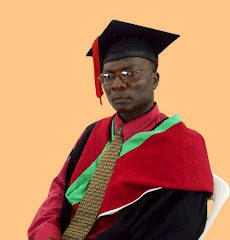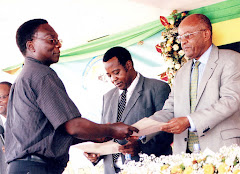President John Magufuli congratulating CCM members after having elected him their chairman.
Dr Magufuli also encouraged party leaders to play watchdog role on government and have no fear on criticising government leaders. “The party leaders aren’t here to fear government leaders … especially in protecting interests of the underprivileged,” President Magufuli stated when opening CCM’s general assembly in Dodoma. He wondered that the party has been active in campaigning during the elections, “but after winning elections and coming to power it has been putting itself aside either by wearing governmental status or fearing the government leaders,” he said. He argued that the CCM was currently the ultimate ruling party under which the government was formed; hence all government leaders ought to respect the party leaders. Just as important, he said the ruling party leaders were duty-bound to provide a link between the people and the government. During his era, the first party’s national chairman, the late Julius Nyerere also underscored the role of the party in linking the people with their government and clearly told the people what the government was implementing, he recalled. “I would be surprised to see a citizen who has no clue why the government was constructing the standard gauge railway, or buying bombardier aircraft in front of a CCM leader … who fails to enlighten the people that particular area,” he stated.

The elected CCM Chairman and Tanzania's President John Magufuli in a light moment with party's Vice-Chairman and Zanzibar President Dr. Mohamed Shein during the election process which was held at party's headquarter in Dodoma, the country's designated capital city.
Meanwhile the Zanzibar President Dr Mohamed Shein and Philip Mangula have been elected by NEC as party's Vice Chairmen for Isles and Mainland respectively after having received 1826 votes each. The elected top CCM brass will lead the ruling party until 2022.












